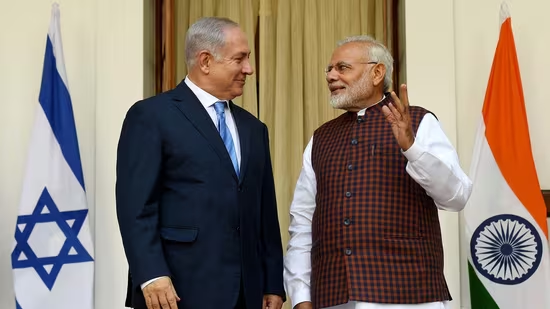In an era defined by geopolitical shifts and security concerns, the recent Quad Leaders’ Summit in Wilmington, attended by U.S. President Joe Biden and the Prime Ministers of India, Australia, and Japan, marked a pivotal moment for international cooperation in the Indo-Pacific region.
As the last summit for key figures like Biden and Japan’s Prime Minister Fumio Kishida, this gathering not only celebrated 20 years of the Quad’s existence but also addressed urgent global challenges. This article delves into the outcomes of the Wilmington Summit, the implications of the Wilmington Declaration, and the future trajectory of the Quad.
Understanding the Quad: A Brief Overview
What is the Quad?
The Quadrilateral Security Dialogue, commonly known as the Quad, is a strategic forum comprising four nations: the United States, India, Japan, and Australia. Formed in 2004 in response to the Asian tsunami, the Quad has evolved into a significant political and military alliance focused on maintaining stability in the Indo-Pacific region. The group’s objectives include promoting democracy, ensuring maritime security, and addressing global challenges such as climate change and health crises.
Key Leaders and Their Roles
At the Wilmington Summit, President Biden emphasized the Quad’s commitment to a free and open Indo-Pacific, while Prime Minister Kishida’s leadership has been instrumental in reinforcing the Quad’s political weight. Indian Prime Minister Narendra Modi and Australian Prime Minister Anthony Albanese also play crucial roles in shaping the agenda and fostering collaboration among the member states.
The Context of the Summit
Global Challenges
The Quad Leaders’ Summit took place against a backdrop of complex global crises. Ongoing conflicts in Ukraine and the Middle East, escalating tensions in the South China Sea, and emerging non-traditional security challenges posed a daunting agenda for the leaders. The Wilmington summit sought to address these issues through cooperation and strategic alignment.
The Wilmington Declaration
The joint statement issued by the Quad leaders, known as the Wilmington Declaration, reflects a commitment to addressing contemporary challenges. The Declaration includes:
- Response to the Ukraine Conflict: The Quad reiterated the importance of international law and expressed a desire to see an end to the conflict in Ukraine.
- Concerns Over North Korea: The leaders condemned North Korea’s ballistic missile launches and emphasized the need to prevent the proliferation of nuclear weapons.
- Humanitarian Crisis in Gaza: The summit recognized the humanitarian situation in Gaza, advocating for a sovereign and viable Palestinian state while respecting Israel’s security concerns.
- Political Instability in Myanmar: The Declaration also highlighted the worsening political situation in Myanmar and the need for a unified approach to address it.
Addressing the China Challenge
A Sharper Focus on Beijing
One of the most significant outcomes of the Wilmington Summit was the Quad’s unequivocal stance on China. Unlike previous years, the leaders directly addressed China’s aggressive actions in the Indo-Pacific without naming it explicitly. The Declaration condemned China’s militarization in disputed areas, emphasizing the importance of adhering to international law.
- Maritime Security: The Quad leaders expressed concerns over the use of coastguard and maritime militia vessels as tactics for intimidation and coercion, stressing the need for transparency and accountability in maritime operations.
Strengthening Maritime Cooperation
The Wilmington Summit saw a notable increase in initiatives aimed at enhancing maritime security:
- Quad-at-Sea Ship Observer Mission: This joint coastguard cooperation aims to improve interoperability among the four countries, reinforcing maritime safety and security.
- Quad Indo-Pacific Logistics Network: Designed to bolster humanitarian assistance and disaster relief efforts, this initiative emphasizes shared airlift capacities in response to natural disasters.
- Indo-Pacific Partnership for Maritime Domain Awareness (IPMDA): This partnership seeks to enhance collaboration with the Pacific Islands Forum Fisheries Agency, ensuring comprehensive maritime domain awareness.
Expanding Regional Partnerships
Collaboration with ASEAN and Beyond
The Quad’s commitment to strengthening ties with regional partners was evident at the Wilmington Summit. The leaders announced continued cooperation with the Association of Southeast Asian Nations (ASEAN), the Indian Ocean Rim Association (IORA), and the Pacific Islands Forum (PIF).
- Quad Fellowship Program: This initiative was expanded to include students from ASEAN countries, fostering people-to-people ties and promoting educational collaboration across the region.
Implications for the Future
The Quad’s Enduring Relevance
The outcomes of the Wilmington Summit underscore the Quad’s growing significance in addressing geopolitical challenges and fostering cooperation in the Indo-Pacific. As the world navigates an increasingly multipolar landscape, the Quad is poised to play a crucial role in promoting stability and security.
Looking Ahead: The Quad’s Agenda
The next steps for the Quad will involve deepening cooperation on several fronts:
- Climate Change: Addressing environmental challenges will be essential, given their global implications. The Quad can lead by example in sustainable development and climate action.
- Health Security: Strengthening health systems and ensuring equitable access to vaccines and healthcare can help prepare for future pandemics.
- Technological Cooperation: Collaborating on emerging technologies will be vital to maintaining a competitive edge and addressing security concerns.
Conclusion
The 2024 Quad Leaders’ Summit in Wilmington was a landmark event that reaffirmed the commitment of the United States, India, Japan, and Australia to a free and open Indo-Pacific. By addressing critical global challenges and strengthening regional partnerships, the Quad is positioned to play a pivotal role in shaping the future of international relations. As these nations move forward, their collaborative efforts will be essential in promoting peace, stability, and prosperity in a rapidly changing world.































